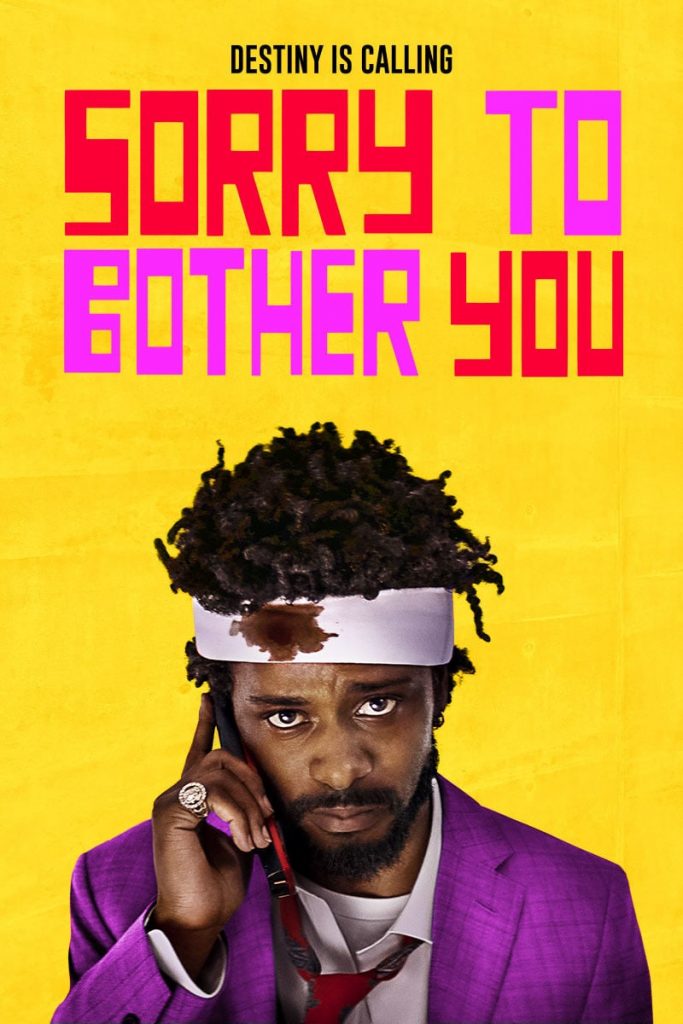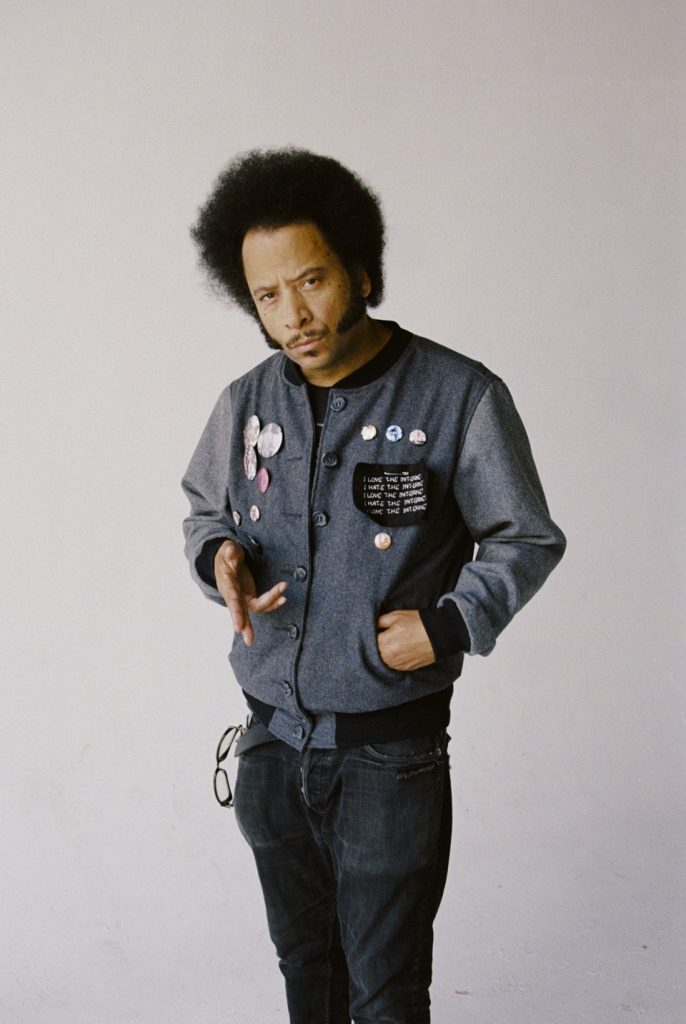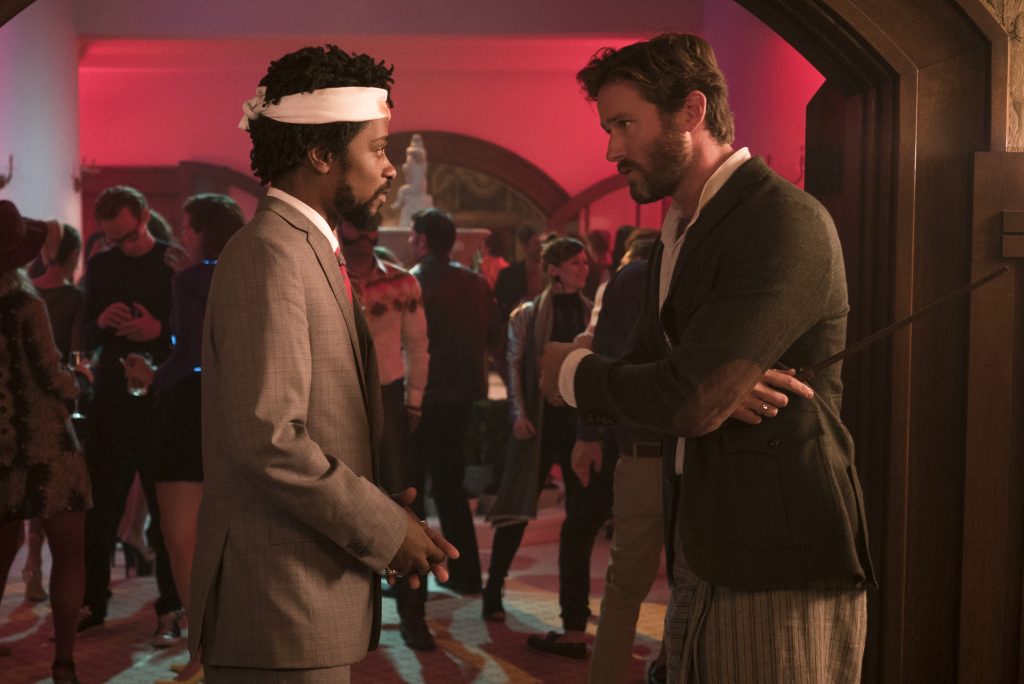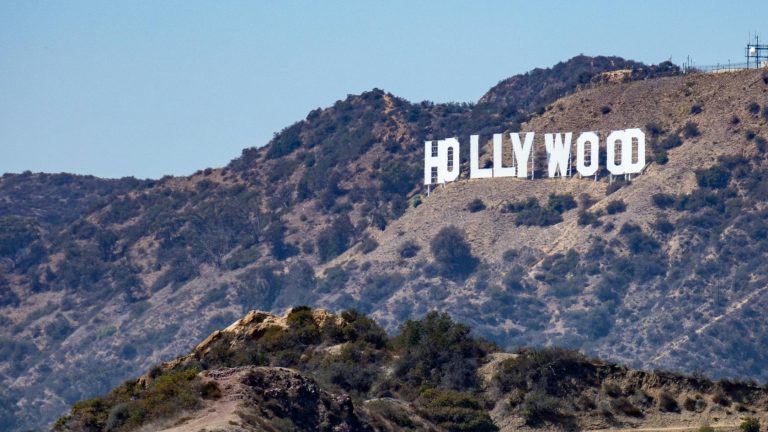Sorry To Bother You Film Review: Analyzing Society Under a Unique Lens
The critically acclaimed film, Sorry to Bother You, presents itself in the utmost satirical manner. Its themes cover various topics such as class warfare, late-stage capitalism, and love of humiliation. The problem it confronts is not new and is seen in films such as Neill Blomkamp’s Elysium, James DeMonaco’s The Purge, and Damien Chazelle’s Whiplash. Although the movies have much in common, what differentiates Sorry to Bother You from its constituents is looking at these problems through the lens of BIPOC characters. The journey in which Lakieth Stanfield’s character Cassius Green takes asks many questions that he must answer about his reality, and his role in society, questions director Boots Riley has been asking all his life.

How Influential Was Boots Riley’s Journey?
Boots Riley is an African American rapper, social activist, producer, and director. His entire career leading up to his directorial debut was built on the right to question your reality. His activism and rap career heavily focused on the problems that plague society, such as social stratification, classism, social immobility, systemic racism, and many social critiques. He worked with many artists who echoed discontent with the world, such as Tupac Shakur and Rage Against the Machine. As you can see, social critiques are not new to Riley, which is why we see such an influence in this film. The journey in which Cassius assumes the role of rebel leader has strange, outlandish, and down-right weird situations, such as when Cassius finally makes it to the ridiculous power caller suite or when he literally turns into a horse. The film was initially met with dissatisfaction in its release as the plot was deemed too strange. According to Riley, this was all in service to the social critiques he was trying to showcase.

How Is The Themes Of The Movie A Social Critique?
To address the elephant, or better yet, the horse in the room, is paramount. At the point in the film when Cassius stumbles upon the horse hybrid humans (Equisapiens) who WorryFree has plans to use as labor, I think, is where most audiences tuned out. The film follows a plot seen throughout many rebellion movies; however, it subverts expectations by having Cassius confront such an absurd situation. Why would a character, whose personal journey we all could relate to, be confronted with such a bizarre circumstance? What Riley is showing here can be interpreted in 2 ways. Firstly, as a metaphor seen through the eyes of a BIPOC character. Worryfree is an allegory for the American Slavery, where they are the enslavers, and the workers are enslaved to their system. Riley even goes as far to show that the workers being horse-human hybrids are because enslaved people were considered vehicles of labor, much like horses. Cassius seeing this all play out, as silly as it is, feels for them, and he ultimately chooses to help as he can see much of the problem that plagues his community in them.
No man is justified in doing evil on the ground of expediency.
Theodore Roosevelt, 1900
The second way this is interpreted is through stories such as Pinocchio. As written by Jason Oller of the Hollywood Reporter, on Pleasure Island, if “you want to smoke, gamble, drink and curse? You’re going to be turned into a donkey and sold into slave labor”. In the film, WorryFree can offer something beyond your wildest dream: food, shelter, and the vices that come with it. WorryFree is essentially offering a free pass into their very own Pleasure Island. And this is where Riley’s voice is the loudest; he shows society’s complicities in the social agreement. It causes us as an audience to think critically as we confront “an indictment of the working class” as the Hollywood Reporter put it. It harkens the age-old question, does the end justify the means? The end is the access to basic human needs, while the means is your blind participation in the unjust system.

How Diverse Is The Movie’s Leadership?
Without Riley’s social commentary I could have not come to such a conclusion, although; Riley is not the only reason this film works in the way it does. Much of the accord should be given to the leadership team in their pursuit to craft Riley’s vision. BIPOC such as film editor Terel Gibson, costume designer Deirdra Elizabeth Govan, and producer Nina Yang Bongiovihave all have prolific work, but their experiences and the representation that it brings to the film ultimately help to achieve the film’s goal.
How Can We Start Thinking Critically?
In conclusion, the film covers various complex issues, whether that is classism, labor inequality, or corporate dominance. By having the main character being played by a BIPOC and having a diverse leadership team, Boot Riley’s Sorry to Bother You opens itself up to a perspective and interpretation not seen much within the American film canon. Riley does an excellent job at showcasing this by not being afraid to delve into the strange. The Strange is its biggest strength and helps the audience to think intrinsically about themselves and their role within society.



